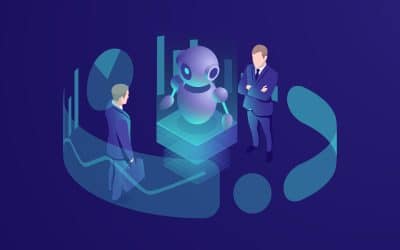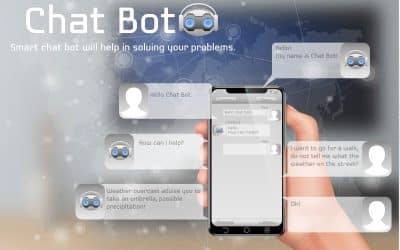Artificial Intelligence (AI) is fast transforming from a fanciful idea to an actual device for executives across different sectors. The potential for it to provide an unmistakable “AI Advantage” is not an abstract concept; it’s an imperative strategic requirement for companies that want to remain at the forefront of technology. Most companies have an enormous amount of data, including insights about operations, the behavior of clients, market performance, employee efficiency, and so on. The fact is that having an abundance of data means something different than having the correct information and information to assist in analysis.
Many companies need to use their data to its fullest potential. Reliable and easily accessible data is essential to providing real-time insights and speeding up complete process automation and intelligence (particularly GenAI) across your entire business. Businesses committed to driving automated decisions with one trustworthy source are well-positioned to be efficient and innovative and achieve a distinct advantage in the market.
In this blog post, we’ll look at the transformative power of Artificial Intelligence Solutions. The focus will be practical ways to use AI to improve decision-making based on data and streamlined task automation, customized and efficient leadership strategies, and creating an AI-forward environment of creativity and speed. After this journey, you’ll have the information and knowledge to use AI’s potential. Let’s get going.
What Is AI?
Artificial intelligence, also known as AI, is a technology that allows computers and other machines to imitate human intelligence and the ability to solve problems. AI can perform tasks that typically necessitate human input on its own or with different technology (e.g., sensors such as geolocation, robotics, etc.). Artificial assistants, GPS direction, self-driving vehicles, and intelligent AI applications (like Open AI’s ChatGPT) are but the most prominent instances of AI being used in our daily news and lives.
Artificial intelligence encompasses and often co-occurs with deep learning and machine learning in computer sciences. It involves creating AI algorithms modeled on the human brain’s decision-making process. These algorithms can learn from information and produce increasingly precise predictions or classifications over time.
Artificial intelligence has experienced numerous hype cycles, and even to those who doubt it, the launch of ChatGPT appears to be the beginning of a new phase. When generative AI was used, considerable advancements in computer vision occurred. However, today, the most significant leap lies in the natural processing of language (NLP). Nowadays, natural language processing AI can synthesize and learn human languages and other types of data like videos, images, software code, and molecular structure. Applications of AI continue to grow each day. However, as the excitement around the application of AI tools in the business world takes off, the debates about AI ethics and responsible AI are crucial.
Benefits Of Artificial Intelligence
Artificial Intelligence (AI) is fast becoming vital to daily life. If you’ve visited self-service kiosks to check into a flight before you leave, entered your search engine and were given recommended keywords, or turned on the cruise control for a long journey, you’ve benefited from AI. In addition, companies are looking for ways to streamline everyday operations, remain in touch with their clients, and obtain the edge over competitors to speed up expansion with AI. The advent of AI has changed how we live with every passing day; more openings for jobs ranging from data scientists and information specialists to software developers are open to fresh hires.
Smart Decision-Making
Many companies use AI technology to improve their daily routines, study emerging trends, forecast expansion, and forecast outcomes. Using significant stores’ websites to add items to their cart, customers are immediately provided with another product for sale based on an advanced algorithm. The algorithm is designed to analyze hundreds of customers with similar purchases and then make an educated recommendation. Furthermore, social media platforms use applied AI and machine learning to show specific content to their customers. Businesses can also leverage Machine Learning Consulting services to get a complete advantage. The more people use the service, the more AI can learn about their habits. With the help of an extensive neural network, the machine learns to become superior in making intelligent decisions.
Automation
Automation is an essential benefit of artificial intelligence in the world of business. Companies use automation to keep in touch with their returning and new customers via auto-reply emails, appointment reminders, and feedback surveys. If you’ve ever paid for coffee and received a quick text receipt, it’s only one of the many examples of how AI improves business processes. In addition, many online merchants depend on automated drop-shipping companies to simplify their procedures, eliminate the demand for massive storage facilities, and improve efficiency. By limiting human input through automated processes, companies will be able to utilize the skills of their workers better as well as their time.
Medical Progression
Modern medicine has also embraced AI to help doctors and nurses identify and treat patients without costly or lengthy hospital stays. For example, doctors can monitor a diabetic’s sugar levels using an app to monitor glucose levels. The same patient can access real-time information on their health from within the privacy of their own home. Medical records and patient information are easily shared between hospitals via websites, and vital data is gathered to improve results in community health, like the one seen in recent tracing at home during the COVID-19 epidemic. Medical professionals can concentrate on the requirements of patients, the people in the community, and the community at large while AI performs the heavy lifting.
Improved Customer Experience
The days of calling customer support and waiting for a hold time to talk to someone are quickly relegated to the old-fashioned way. Numerous companies are now using chatbots online to assist in addressing and solving customers’ issues in a much easier way. By using a program called the artificial process of language (NLP), chatbots can be trained to mimic human speech. Chatbots can also use predictive software to study and respond to the client’s needs, providing quick and personalized solutions.
In addition, AI increases customer satisfaction and provides increased security protection. With deep learning, the most advanced form of machine learning, firms can use encryption software and deep neural networks to protect confidential personal information. As more sensitive information is available online and accessible to the public, the need for cybersecurity specialists will only rise.
Research And Data Analysis
With the help of AI in research and data, scientists can better discern patterns, forecast outcomes, and then make changes in half an hour. Data that took several months to accumulate can be gathered in only minutes or even a few seconds. A program to teach languages such as Duolingo or Babbel could find that most users have a plateau in their fluency after three months of studying and include more enjoyable classes to compensate for the space. A meal delivery service could employ an algorithm to discover that mothers who stay home are more likely to look at their emails and meal plans each morning and alter how they market their emails to achieve maximum results. The knowledge acquired from artificial intelligence and data analysis research is essential.
Perform Repetitive Tasks
Companies seek methods to boost productivity, and AI assists in eliminating monotonous routine tasks that hinder productive workdays. The average worker spends about two hours studying and responding to emails, which makes “inbox zero” (the email management technique that seeks to ensure that your inbox remains free of clutter) a fable. Employ AI software to automate the correction of mistakes in writing and spelling and reduce the time required to proofread. Also, email application applications can perform routine tasks automatically by scheduling the email response.
Furthermore, many companies use robot process automation (RPA), which can be programmed to work with the system like humans. RPA can take on repetitive tasks such as cross-checking invoices against purchases or placing orders for products if stock levels reach an amount, which allows employees to concentrate on work that adds value instead of repetitive work.
Minimizing Errors
Reducing human error is an essential advantage of AI. The algorithms that learn help identify potential errors and provide immediate corrections. Utilizing them, manufacturers will be able to monitor production closely, improve the safety of employees, and decrease the chance of errors in production. The shipping industry can be a source of possible inaccuracies in inputs as well as shipping delays or loss of goods, thereby limiting the loss of revenue. Healthcare providers can also improve the quality of care for patients and improve outcomes by making sure that the results from tests do not go unnoticed. With AI as a method to reduce human errors, each business can be more likely to achieve successful outcomes.
Understanding The AI Advantage
AI Advantage refers to the edge in competition that leaders gain by using Artificial Intelligence (AI) to boost their ability to make decisions, streamline the efficiency of their operations, and build up the teams they lead. This is not about replacing the human leader but improving it by leveraging data-driven insight and automated abilities.
Below are some of the most essential capabilities of AI Advantage-
Data Analysis
Artificial intelligence excels at processing large volumes of information from diverse sources, including customer behaviors, market trends, and internal indicators. Leaders can spot subtle patterns, gain more insights, and make well-informed decisions based on concrete data. A study, for instance, found that companies using AI for advanced analytics grew their business profitability by 10% compared with competitors that didn’t.
Decision Making
AI can analyze data and generate scenarios to aid leaders in evaluating possibilities and making educated decisions. It reduces the likelihood of bias and allows managers to consider all the available data before making a decision. Based on a research report, companies employing AI for decision-making improved their return on investment by 19 percent on average.
Automation
AI will automate tedious and lengthy chores, freeing leaders’ time to concentrate on strategic direction and relationship development and encouraging creativity. It can lead to greater effectiveness and efficiency within the company.
Personalization
AI can analyze data to identify the specific requirements and preferences of team members, customers, or other stakeholders. Leaders can tailor their training, communication, and assistance to various groupings, developing a more productive and engaged team.
If they embrace the “AI Advantage,” leaders can gain an edge in the rapidly changing business landscape. This will result in better decision-making, increased operations performance, and improved organizational efficiency.
How Do You Make AI Useful For You?
Let’s look at ways to make the most of AI.
Create Your Information AI-Ready
Manage, prepare, store, and retrieve your data using HPE and make your data AI-ready. It is easy to connect, analyze, and control your data, regardless of where it is for feeding your AI jobs. Utilize any data, any programming language, and any platform as you automate and expand complex data pipelines to support models based on ML, which means you can develop superior models without having to rewrite codes. Speed up AI data pipelines and increase the time to insights while you tackle the challenges of data-intensive tasks by maximizing performance, simplicity, and efficiency on a large scale.
Time To Value Speed To Your AI Jobs And Applications
For innovative AI projects to quickly gain value, you must satisfy the requirements of your users and developers, who need to cooperate and ensure that your team members have simple self-service access to all the required equipment. Make it easier to refine and train models quickly and precisely. Develop the generative AI and ML workstations that can help drive faster innovation. Profit from AI throughout the entire process, from your data center in the enterprise up to the edges. Get started by implementing an AI-based pre-configured solution with the help of your Artificial Intelligence Consultant.
Feel Free To Extend AI To Your Entire Organization
To expand AI to your entire organization, there are new methods to introduce custom AI models to production quicker and pair them with the proper strategies and knowledge to achieve your goals for innovation and efficiency. It is essential to have constantly trained and re-tuned models using reliable and up-to-date data. It is possible to run large-scale, massively data-driven AI applications backed by established supercomputing technologies that meet the demands of today and the future. And experts who can assist in integrating pre-trained AI models into your current IT environment. They can also aid you in expanding AI to all your employees and with confidence.
Make Your AI Models With Supercomputing Speed
How can you tackle the most demanding business challenges at a large scale? Learn how to tweak AI models and speed up time-to-value. Develop AI applications, alter existing models, and boost efficiency with the help of direct liquid-cooled supercomputers. Also, elevate crucial AI and machine learning applications that can scale to meet your goals. Let the potential of AI on a massive scale by implementing a complete, AI-driven solution.
Simplify AI Complexity To Generate Value
Businesses want to leap straight into AI. However, AI-related initiatives may take time due to the current market buzz about GenAI and the rapid pace of technological innovation. There are many stakes, and pressure is mounting to start and boost AI initiatives that bring the most value. The trick is to reduce AI’s complexities by making three essential elements that are crucial to success:
AI Strategy
You should align the AI strategy with your business strategy. If you’re talking with shareholders or investors about improving profitability or creating white space opportunities for business models, your AI strategy should also focus on that area.
Business Use-Case
Concentrate on finding high-value commercial use cases and creating faster pathways to transition from POCs to solutions that improve the value.
Data Is What Makes Up The Base
Create a data strategy as the foundation of your AI initiative. With a solid database, bringing even the most valuable usage cases to fruition will be easier.
Tips For A Smarter Leadership Style Using AI
AI has not been designed to take over human leadership. Instead, it is intended to enhance it. With these methods to leverage the potential of AI to improve your decision-making process, improve your processes, and strengthen your employees:
Identify Leadership Tasks Suitable For AI
All leadership roles aren’t created equal. Although AI excels in routine, data-driven jobs, it can’t replace humans’ crucial judgment and imagination in strategic decisions.
Here’s how AI could be an invaluable Partner:
- AI-powered calendars help organize appointments, meetings, and travel plans and free up your time for other strategic pursuits.
- AI can analyze considerable datasets to find patterns, trends, and areas of potential enhancement in the team’s or individual efficiency.
- Everyday AI can automate tasks like creating reports, analyzing data, managing workflows, and generating reports, allowing users to concentrate on more important goals.
Take notice of the value of your human intelligence and the ability to think strategically. Ensure you leverage AI to focus your mental and physical space on tasks that demand unique human capabilities.
Embrace Data-Driven Decision Making
AI analyzes vast data from various sources, including the market, consumer behavior, and internal indicators. The data you collect can be converted into valuable insights that can help inform the decisions of your leaders:
- AI analyzes data from the past and identifies patterns, helping you anticipate the future with greater accuracy. This reduces the possibility of making a mistaken decision.
- AI can process information quicker than humans, allowing you to make faster and more educated decisions, especially when in a time-sensitive situation.
- Be conscious of the potential for biases within AI algorithmic data and models. Biases could be rooted in the information used to train the AI or the program. It’s essential to scrutinize the information used to train AI and ensure that AI outputs are accurate and objective.
Personalize Your Leadership Approach
Knowing the individual’s needs and preferences is the key to developing a productive and enthusiastic team. AI can help you with this process by:
- Data from the personality assessment, performance review, and communication preferences are analyzed to determine individual strengths and weaknesses.
- AI can adapt coaching, opportunities for development, and communication styles according to an individual’s needs. This helps create an engaged and more efficient workforce.
- Ethical considerations must be considered when using AI to personalize. Data processing and analysis must comply with privacy laws, and users must have privacy control over the information they collect.
Build An AI-Ready Culture
Effectively and successfully implementing AI will require fostering a sense of rampant learning, innovation, and collaboration.
- Be open about AI’s significance and its effects on employees. Encourage questions and suggestions and ensure complete transparency throughout the process.
- Install AI slowly and provide assistance and training to help employees become more adept and acquire new techniques.
- You and your team should have the skills to harness and control AI efficiently. This is a constant process of training and learning possibilities.
By implementing these tips with the guidance of your Artificial Intelligence Agency, you can create an AI-ready environment that welcomes changes, thrives on innovations, and propels your organization’s leadership to greater levels. Remember that AI can be a potent tool, and successful implementation demands human-led leadership, ethical considerations, and constant training.
In Summary
When we enter the unknown world of AI and machine learning, we must remember the speed at which we adopt AI and the effort and focus we can bring. AI can improve the quality of processes and products, making choices more informed, but these are mainly inaccessible tasks. AI technology won’t take over human work but will enhance their abilities, allowing advanced machines to work alongside intelligent people. AI will automate routine and repetitive tasks, provide extensive data analysis using machine training (“analytics with steroids”), and interact with employees and customers through chatbots or intelligent agents. Companies should play around with the latest technologies and build their skills.
The way we lead is changing. AI isn’t replacing humans or a substitute for human intelligence, but it’s a device to boost your decisions, improve processes, and strengthen the team. Use data-driven insights to personalize your strategy and create an AI-friendly culture to provide brighter direction and more effective outcomes. Keep in mind that continual education and ethical considerations are crucial. The future lies in AI and humans working together to achieve success.











